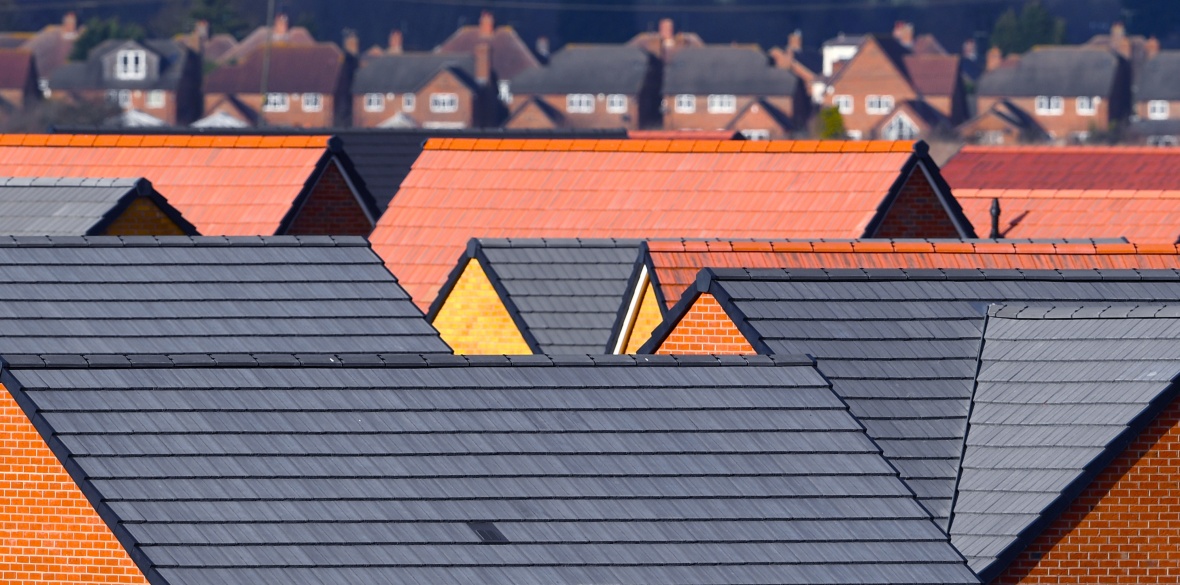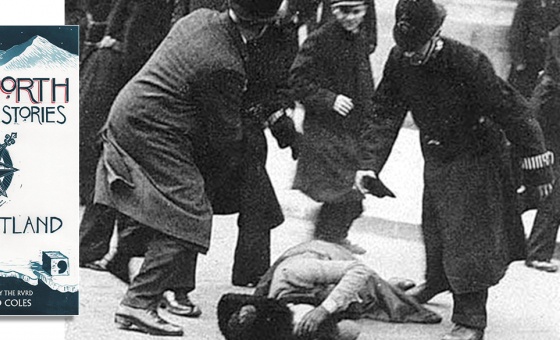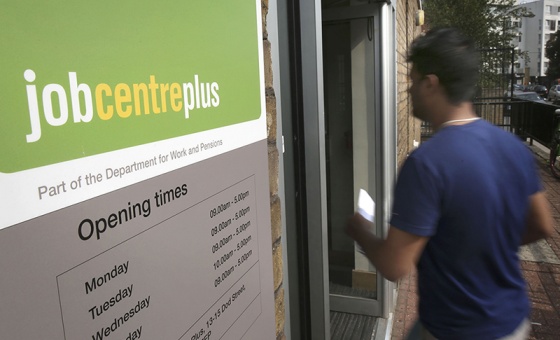This is the last article you can read this month
You can read more article this month
You can read more articles this month
Sorry your limit is up for this month
Reset on:
Please help support the Morning Star by subscribing here
THE HOUSING crisis is a consequence of land ownership. Land has always been the prime source of power and wealth in Britain and today 158,000 families own two-thirds of all the land. That concentration is increasing. This can be deduced from the fact that home ownership is declining.
While this country has the poorest housing stock of any developed nation, it is the land beneath which holds the value, especially in London and the south east, where the land-to-building ratio is huge.
While building costs rise generally in line with price inflation, land values have risen by much more since the 1990s.
There is a way to solve the housing crisis and reduce the concentration of wealth — simply tax land values.
It is both fair and necessary that people pay on a continuous basis for exclusive access to the land which is our common inheritance — no-one manufactured land — and the traditional way of a one-off payment for or outright theft of land must end. In other words, pay the rent.
Land value taxation (LVT) effectively nationalises land by nationalising the rent.
Just as wages are the return to labour and profit or interest is the return to capital, rent is the return to land, but, unlike labour, capital and land are inanimate and passive and cannot “earn” any return.
LVT is impossible to evade — you cannot hide land in a tax haven — and simple to administer. All land is valued and the owners sent an annual bill.
The Valuation Office (VOA) provides valuations of properties for business rates and that was the case for houses too before the domestic rating system was abolished in 1990. Land is easier to value than land plus building and the VOA already does this for the purpose of the Community Infrastructure Levy (CIL), whose methods could be improved by digital technology.
The Land Registry is more than 85 per cent complete and the ownership of the rest is known by other authorities, such as the Department for Environment Food and Rural Affairs. LVT billing could then be administered by local authorities as they do for council tax and business rates, or another centralised system might be created.
The housing crisis can only be solved by building more homes and that first requires land. LVT could bring unused and underused land, suitable for residential development, onto the market. There's a lot and that would force down the price.
But new builds can only represent a small fraction of housing stock in the short term. It is ownership by those able to exploit the crisis that is the real problem. Private landlords receive over £10 billion per annum in the form of housing benefit, but those homes should be well maintained, affordable council flats and houses.
LVT is intended as a replacement for inferior taxes, not an additional one. Some advocates claim that it could replace all taxes as its revenue potential is at least £200bn per year and the dynamic effects it will unleash would augment that over time.
More realistically, it could replace standard-rate income tax on earned income and reduce the VAT rate or whatever might replace it after Brexit. Except for business rates and the annual tax on company-owned properties (ATED) all these taxes exacerbate the housing crisis, while council tax is the most regressive one we have — the owner of a Westminster mansion pays the same as the tenant of a Weymouth bedsit.
LVT would be levied on the owners of all land which has a market value, exempting most publicly owned land and, for some, this would mean paying a property tax for the first time, particularly the owners of farmland.
Others who would be affected are the owners of unused land, such as development and brownfield sites, some of which are eyesores that actually lower the value of neighbouring locations.
The people most liable to be badly affected by an immediate comprehensive implementation of LVT would be the ordinary homeowner living in an expensive location, which may not have been so when they started on the property ladder, or those struggling with a big mortgage.
This is not just a political difficulty, it is one of fairness.
When the 2017 Labour Party manifesto contained a small reference to LVT, the Tory Party and its obedient media servants went to town the week before the election on Labour’s “garden tax,” claiming it would treble council tax and decimate house prices.
The irony is that the paper they quoted from, gleaned from the Labour Land Campaign website, clearly stated that the implementation proposed was designed to avoid both those outcomes.
The manifesto distinguishes between land under a primary dwelling and land which generates, or has potential to generate, an income or provides a privileged benefit such as a second home or a large estate. All businesses generate income — that's what they are there for — and that includes farming but also the private rented housing sector.
For ordinary homeowners, the initial implementation would have the LVT rate set to replace council tax receipts on a revenue-neutral basis for each local authority. During the transition to full LVT, which could take decades, rates would be converged and uplifted to collect the maximum of land value for public benefit.
Some would see this as a concession too far for homeowners, who have benefited so much from the current system, and believe that the reduction in other taxes would balance out disposable incomes. This is debatable. Politicians are surely aware that turkeys do not tend to vote for Christmas.
There is little doubt that prices would come down substantially as soon as it is perceived that LVT is here to stay and the gravy train was about to hit the buffers. This would cause problems for lenders and would have to be managed intelligently. Otherwise, would lower house prices be such a bad thing?
One reason why LVT would cause land and thus house prices to fall is that prices and taxes are inversely related — the higher the tax the lower the price. An explosion in house prices in London and the south east has occurred since the domestic rating system was replaced, first by the poll tax and then the council tax. More than 50 per cent of homes in London are rented and LVT will have a big effect there.
Another consequence of LVT is that the supply of land for building would increase and increased supply means lower prices. It would “persuade” land hoarders to offload their non-performing assets.
The big house builders with land banks would have to build or else sell to those ready and willing to do so because they will be liable for LVT as soon as planning permission is granted or at least within a reasonable period.
Development will also be hastened because builders will no longer need to negotiate dodgy deals with local authorities to minimise their statutory obligations. Infrastructure and social housing will be funded from future LVT revenues, as all such investment feeds directly into local land values which can then be reclaimed from increased LVT bills.
It is essential that land values should be frequently reassessed so that all public investment is clawed back via LVT. From the start, much more LVT will be collected from residential properties than from council tax.
But the really exciting thing about LVT is the power it will give to local authorities to take control of social housing. The game will be up for the amateur and parasitic landlords. For the first time, they will be responsible for the property tax throughout their ownership.
And there will be no transitional concessions for them. Where the tenant has paid the council tax, the landlord will only be able to raise the rent by that amount. Otherwise they will not be allowed by law to pass on the higher tax in the rents they charge.
LVT campaigners say that it is impossible for landlords to do this, as the market will eventually adjust rents to their previous level, but tenants need to have their fears allayed that their landlords will not throw them out at the first opportunity.
Landlords with properties in the “hottest” locations will see the biggest LVT bills and hence the largest drop in their income and they will be eager to sell up.
This is where the major price crash will come and where the local authority will be able to step in and acquire the housing stock they need at bargain-basement prices, to re-let as council houses to the sitting tenants.
And the government, taking a more proactive stance, could choose a site for a new town or garden city such as a big country estate. It could designate zones for business, residential and wildlife and plan the major infrastructure work.
The estate owner would then receive an LVT bill based on the various permitted uses. Bingo! Estate owners are lazy people, they will not relish the work or expense involved in developing a whole town or city and will be begging someone to take the land off their hands.
Carol Wilcox is secretary of the Labour Land Campaign.












